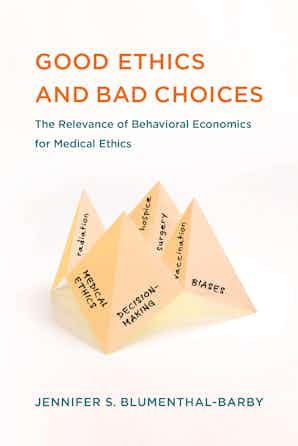Good Ethics and Bad Choices. The Relevance of Behavioral Economics for Medical Ethics
A book on how behavioral economics challenges some of the most fundamental tenets of medical ethics.
Go to Chapter 2: Bad Decisions? What Behavioral Economics Means for Patient Autonomy, Decision Quality, and Well-Being. Great topic.
The predominant ethos in medicine and medical ethics is to assume that patients are capable of making autonomous decisions that promote their own personal goals and values so long as they are properly informed of the options and their risks/benefits. Behavioral economics and the examples of decisional heuristics and biases discussed in the previous chapter significantly challenge this assumption. Behavioral economics shows that patients’ decisions can fail to be autonomous or to improve their well-being in ways beyond the usual ones that clinicians and bioethicists worry about (e.g., poorly informed consent, coercion, weakness of will). Specifically, in this chapter, I will argue that behavioral economics demonstrates that patients’ decision-making is often at risk for being (1) nonautonomous or autonomy impaired, (2) of poor quality, and (3) harmful to patients and their interests
A must read.
